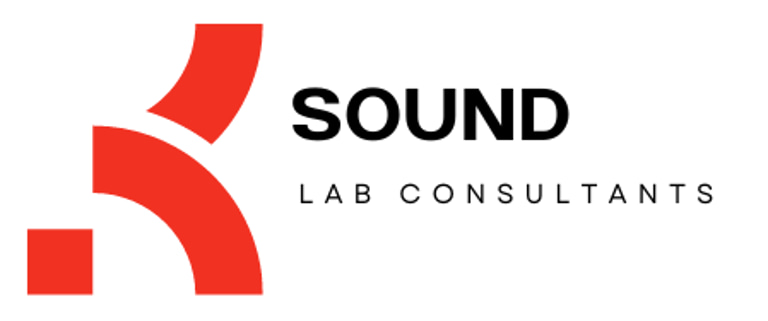

Understanding the Essential Requirements for Improvement (RFI) in CLIA Compliance
The Clinical Laboratory Improvement Amendments (CLIA) is a set of regulations established by the United States government to ensure the quality and accuracy of laboratory testing performed on patient specimens. These regulations are crucial for maintaining the safety and effectiveness of medical testing, as errors or inaccuracies in laboratory results can have significant implications for patient care. To maintain compliance with CLIA standards and continuously improve laboratory practices, laboratories may receive Requirements for Improvement (RFI) notices. In this blog, we will explore the concept of RFIs in the context of CLIA compliance and delve into the essential requirements for improvement.
What is CLIA?
Before delving into the specifics of RFIs, it's important to have a clear understanding of CLIA itself. The Clinical Laboratory Improvement Amendments, enacted by Congress in 1988, are administered by the Centers for Medicare & Medicaid Services (CMS). CLIA regulations apply to all clinical laboratories in the United States, regardless of whether they are part of a hospital, independent, or operated by a physician.
The primary goal of CLIA is to ensure that clinical laboratory testing is accurate, reliable, and consistent. It achieves this by setting forth quality standards and requirements for laboratories to follow in their testing procedures. These standards encompass various aspects of laboratory operations, including personnel qualifications, proficiency testing, quality control, quality assurance, and record-keeping.
Requirements for Improvement (RFI) in CLIA Compliance
Requirements for Improvement (RFI) are notifications issued by the CMS to laboratories found to be in violation of CLIA regulations. RFIs serve as a means of identifying areas where a laboratory's operations fall short of the required standards and signal the need for corrective actions. While RFIs are not punitive in nature, they are an essential part of the CLIA enforcement process aimed at improving the quality of laboratory testing.
The Purpose of RFIs
The primary purpose of RFIs is to help laboratories identify and address deficiencies in their operations promptly. By doing so, they contribute to the overarching goal of CLIA, which is to enhance the quality and reliability of laboratory testing. RFIs also serve as a mechanism for continuous improvement within laboratories, promoting ongoing self-assessment and adaptation to evolving standards.
How RFIs are Issued
RFIs are typically issued following an inspection or survey of a clinical laboratory. These inspections can be scheduled or unannounced, depending on the circumstances. During an inspection, surveyors from the CMS or state agencies assess the laboratory's compliance with CLIA regulations.
If the surveyors identify any deficiencies or non-compliance issues, they will document these findings in a report. Laboratories with significant violations or repeated non-compliance issues may receive an RFI. However, laboratories can also receive RFIs for minor infractions, as the goal is to address any deviations from CLIA standards promptly.
Content of an RFI
An RFI typically includes the following information:
Description of Non-Compliance: The RFI will outline the specific areas in which the laboratory has failed to meet CLIA requirements. This can range from personnel qualifications to quality control procedures, proficiency testing, and documentation.
Regulatory References: RFIs will often reference the specific CLIA regulations that have been violated. This allows the laboratory to review the relevant standards and understand the basis for the RFI.
Suggestions for Correction: RFIs may provide recommendations or suggestions for how the laboratory can rectify the identified issues. These suggestions are meant to guide the laboratory in taking appropriate corrective actions.
Deadline for Response: Laboratories receiving an RFI are typically given a reasonable timeframe within which they must respond with a plan for corrective action. The specific deadline will be outlined in the RFI.
Laboratory Response to RFIs
Upon receiving an RFI, it is the responsibility of the laboratory to respond promptly and take appropriate corrective actions. The laboratory's response should include the following:
Acknowledgment of the RFI: The laboratory must formally acknowledge receipt of the RFI. This acknowledgment should include the laboratory's understanding of the issues identified.
Plan for Corrective Action: The laboratory must develop a comprehensive plan for addressing the deficiencies outlined in the RFI. This plan should include specific steps, timelines, and responsible individuals or departments.
Documentation of Implementation: Once the corrective actions are initiated, the laboratory should maintain detailed records of their implementation. This documentation is crucial for demonstrating compliance during subsequent inspections.
Evidence of Compliance: The laboratory may be required to provide evidence that the corrective actions have been effective in resolving the identified issues. This can include data, reports, and other relevant documentation.
Communication with CMS or State Agency: Laboratories should maintain open lines of communication with the CMS or state agency responsible for issuing the RFI. Regular updates on progress and any challenges faced during the corrective action process are essential.
Consequences of Non-Compliance
Failure to respond to an RFI or address the deficiencies identified in a timely and effective manner can have serious consequences for a laboratory. These consequences may include:
Enforcement Actions: The CMS or state agency may take enforcement actions against the laboratory, which can range from civil monetary penalties to suspension or revocation of CLIA certification.
Impact on Patient Care: Non-compliance with CLIA regulations can jeopardize the accuracy and reliability of laboratory testing, potentially leading to misdiagnosis or incorrect treatment decisions for patients.
Reputational Damage: Laboratories that repeatedly receive RFIs or face enforcement actions may suffer reputational damage, which can impact their relationships with healthcare providers and patients.
Essential Requirements for Improvement in CLIA Compliance
To ensure a laboratory's response to an RFI is effective and leads to sustainable compliance with CLIA regulations, it's essential to focus on the following key areas:
1. Personnel Qualifications and Training
Laboratories must ensure that their personnel, including laboratory directors, technical supervisors, and testing personnel, meet the necessary qualifications and training requirements outlined in CLIA. This includes having the appropriate education, experience, and certifications.
RFI Consideration: Laboratories may receive RFIs related to personnel qualifications if they fail to provide evidence of the required qualifications or if personnel do not maintain their certifications.
Improvement Actions:
Establish clear processes for verifying and documenting personnel qualifications.
Implement ongoing training and competency assessment programs.
Maintain records of personnel qualifications and training.
2. Quality Control and Quality Assurance
Robust quality control and quality assurance programs are fundamental to accurate and reliable laboratory testing. Laboratories must adhere to CLIA requirements for quality control, which includes monitoring and documenting the performance of testing procedures.
RFI Consideration: Laboratories may receive RFIs if their quality control processes are inadequate or if they fail to respond appropriately to quality control failures.
Improvement Actions:
Review and enhance quality control procedures and documentation.
Investigate and address any quality control failures promptly.
Conduct regular internal audits to identify areas for improvement.
3. Proficiency Testing
Participation in proficiency testing (PT) is mandatory for laboratories under CLIA. Laboratories must demonstrate their competence by successfully completing PT programs for the tests they perform.
RFI Consideration: Laboratories may receive RFIs if they have a history of PT failures or if they do not participate in PT programs as required.
Improvement Actions:
Develop a structured PT program that includes regular testing and review of PT results.
Investigate and address any PT failures, including root cause analysis.
Ensure PT documentation is accurate and up to date.
4. Documentation and Record-Keeping
Accurate and thorough documentation is essential for demonstrating compliance with CLIA regulations. Laboratories must maintain comprehensive records of various aspects of their operations, including personnel qualifications, quality control, and proficiency testing.
RFI Consideration: Laboratories may receive RFIs if their documentation practices are inconsistent or if they fail to maintain required records.
Improvement Actions:
Implement electronic record-keeping systems for greater accuracy and accessibility.
Conduct regular reviews of documentation to identify gaps or inconsistencies.
Establish clear procedures for record retention and archiving.
5. Continuous Quality Improvement (CQI)
The concept of continuous quality improvement (CQI) is central to CLIA compliance. Laboratories should proactively identify areas for improvement and take steps to enhance their testing processes continually.
RFI Consideration: Laboratories may receive RFIs if they do not demonstrate a commitment to CQI or if they do not take corrective actions in response to identified deficiencies.
Improvement Actions:
Establish a CQI team responsible for monitoring and implementing improvements.
Encourage staff to report issues and suggest improvements.
Regularly review and update laboratory procedures based on best practices and emerging technologies.
Conclusion
Requirements for Improvement (RFIs) in CLIA compliance are a critical mechanism for maintaining the quality and accuracy of laboratory testing in the United States. Laboratories that receive RFIs should view them as opportunities for growth and enhancement of their operations. By promptly and effectively addressing deficiencies, laboratories can not only achieve compliance but also contribute to improved patient care and the overall success of their healthcare organizations. Continuous vigilance, a commitment to quality, and a culture of continuous improvement are essential in the pursuit of CLIA compliance and the delivery of reliable laboratory services.
